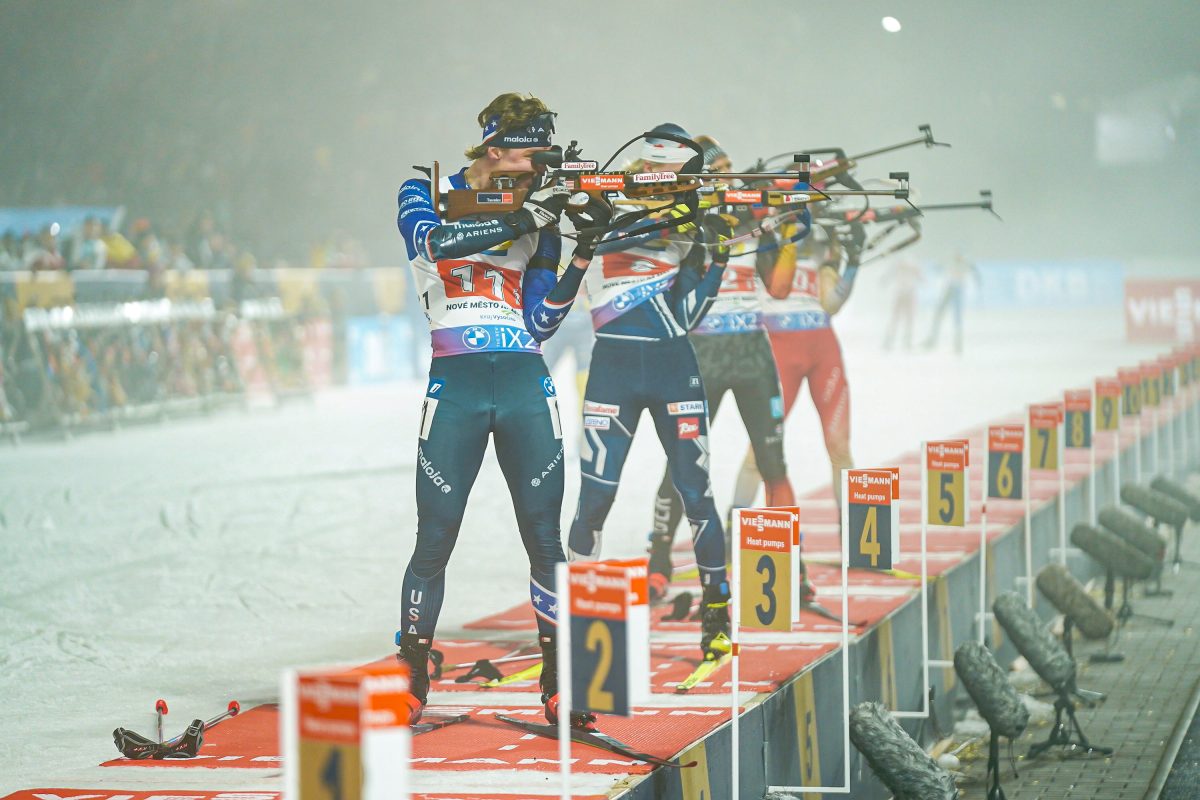“I'm so tired I just want to lay down and sob in a snowbank,” Carl Swenson said to his support staff in the moments after the Maricalonga marathon, a seventy-kilometer ordeal through the Northern Italian valley of Lago de Fasso. . Swenson wasn't talking about sobbing of dispair but one of pure exhaustion that Marcialonga finishers visited on the course. The U.S. Ski Team came away rewarded though with three top twenty-five World Cup results, Swenson's 13th, Wendy Wagner's 19th and Kris Freeman's 25th. It was Swenson's first time earning World Cup points in classic style. His previous best was 39th. “I have been feeling really good; both with my races at U.S. Nationals (in Rumford, Maine) and since coming over to Europe. I first spent a week in Obertillach getting ready for the DolomitLauf (a German World Loppet race in which Swenson finished third). In Obertillach there were great trails right out my door. I've done many marathons but I still didn't quite know what to expect with the Marcialonga. I had the confidence though to go hard right from the start, even if it is such a long race.”
“It's been a many year, long-time goal of time to score World Cup points in classic,” Swenson continued. “Am I satisfied with 13th? Absolutely. I'm just as satisfied with a top fifteen result in classic as I'd be with a (World Cup) podium in skate. This is a good sign for me, especially for the (15cl+15sk) pursuit race. When I can hang with the lead group through the classic stages anything is possible in the skate part. I look to be very competitive (in World Cup pursuits).” Swenson describes his classic racing as a long gradual development of fits and starts both frustrating but also rewarding. “My coaches have been very supportive, telling me that I can be a top classic skier as well. It could be so easy to give up on it if it wasn't for others pushing me to keep improving.”
Much like Sweden's Vasaloppet the Marcialonga favors a very specialized classic skier, one with the ability to double pole for three hours at threshold intensity. Skis would play a factor. “In the pack you could just tell there were some skiers hanging with the pack that were having to work a fraction harder,” Swenson said. “My skis were great. I had as good of glide and the best kick of anyone out there.” Teammate Kris Freeman would not be so lucky. Freeman choose a smaller, cross hatched grind that, within twenty kilometers, filled with dirt. “We weren't aware that the grind Kris went with would pick up so much more dirt than a bigger linear grind,” said National Team coach Trond Nystad. “His skis picked up an insane amount of pollution. They looked like a piece of well-used sandpaper. Their wasn't any structure left in them. The bases were completely smooth, filled with dirt and debris.”
“I felt great out there, considering,” said Freeman. “I could see how much harder I had to work from twenty-kilometers on. I put in a top five effort today,” said Freeman whose older brother Justin spent the day in bed, recovering from a upper respitory cold.
Wendy Wagner was America's lone female representative, finishing 19th for her first World Cup race of the year. “Leading up to the Marcialonga it's been hard to get into a routine and get decent sleep. But I know my European tour is going to go great. I just know it. I hadn't ever done a race this long, or for that matter even trained seventy- plus kilometers in a day, ever but I still came into it with high expectations. I was excited to try the new distance.”
Wagner's explained her race as a see-saw between racing and fatigue. “Five kilometers into it I got really tired. I had to back off the pace and ski easy. I wasn't quite there physically. After backing off for a couple kilometers I could go hard, hammer for a couple k's. The last fifteen kilometers I was absolutely muscularly exhausted. It was a strain to even double pole the gradual downhills.”
“The Marcialonga results were encouraging, said Nystad. “For Kris is wasn't a great race but seventy-kilometers is a long ways to go with skis that weren't running. Maricalonga is an extremely special race. It takes racing it a couple times to know what's important. We didn't go into this race with the support know-how of the other countries in knowing the course, planning for it and logistics. In time we'll have it dialed. For Carl it's a big day. As a support staff we learned some tricks out there. Kris knows he has full control of his diabetes for the long races. The rest of the team just came over from the U.S. (arriving six days before the start). They need to keep their heads high. We know from experience it takes three weeks for us to race up to our potential in distance races in coming from the U.S.”




